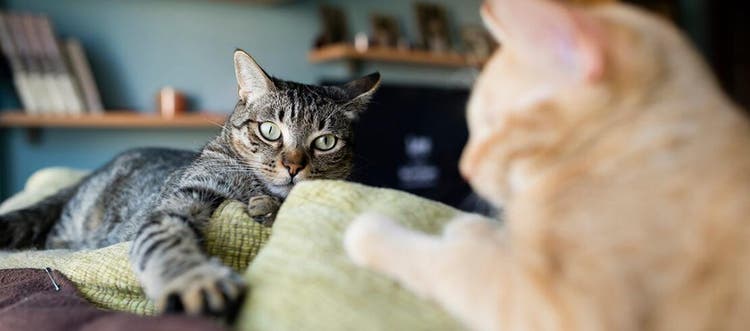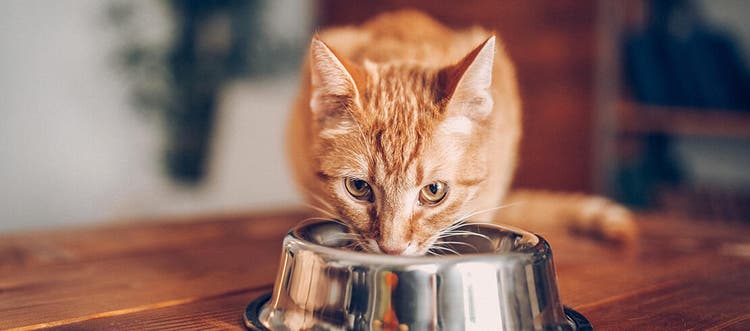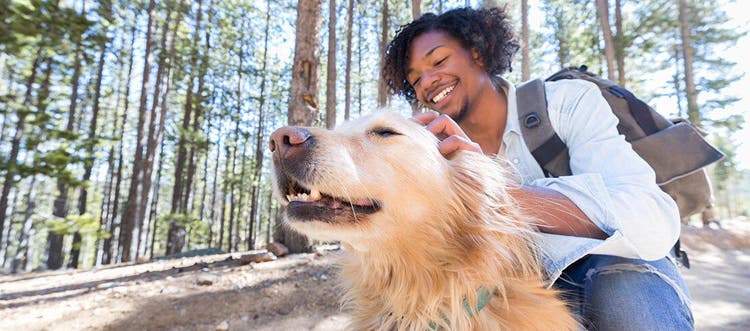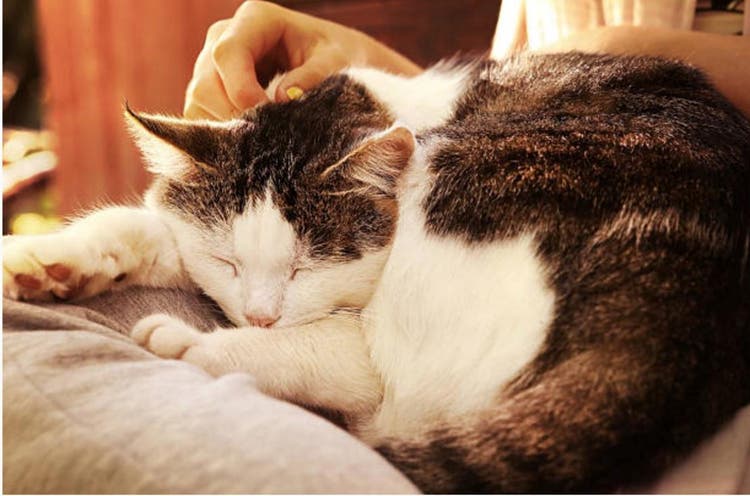Reviewed by Dr Abbie Lam DVM
Learn more about the beautiful, good-natured and loving Ragdoll cat.
Breed profile: Ragdoll cat
Ragdoll cats are sometimes described as ‘puppy cats’ or ‘puppy-like’ because they love to be around people and are considered much more affectionate than the average cat.
With their big blue eyes, cute faces, silky coats and easy-going nature, it’s no wonder they are an increasingly popular choice.
Physical traits and appearance of Ragdoll cats
Ragdolls come in six colours: seal (dark brown to black-brown), blue (bluish grey), chocolate (warm or medium brown), lilac, red, and cream. Their fur can also come in several basic patterns including:
- Colourpoint/pointed, where the basic colour is darker on the ‘points’ (paws, tail, ears and face)
- Mitted, where there is also white on some of the points (front paws, rear legs, chest and chin)
- Bi-colour, where the face has two different colours
Ragdoll temperament and personality traits
Ragdolls make incredible companions and have become an increasingly popular breed. Most Ragdolls are:
- Affectionate and loving
- Laid-back and easy-going
- Highly intelligent and trainable
- Receptive to consistency and routine
Ragdolls love being with people and will follow you around like a fluffy shadow, looking for love and affection. They are even known to greet you at the door when you get home.
Because of their gentle, affectionate and laid-back nature, Ragdoll cats are perfect for families with children. Both as kittens and adults, they love to play and do so with their claws retracted, which provides for safer interactions and helps reduce play-related accidents.
Because they have such easy-going natures, Ragdoll cats do not fare so well outside of the home, and so are particularly suited to being indoor cats.
In addition to being so calm and affectionate, Ragdoll cats are also highly intelligent. With a bit of patience, it’s possible to teach them basic tricks like ‘fetch’ and ‘roll over’.
Despite their easy-going nature, Ragdoll cats still have needs that must be met. They do not like to be left alone for long periods and can get bored if they haven’t had enough exercise. These cats also crave routine and will not appreciate changes to mealtimes or major upheavals in their home environment, such as moving house.
Ragdoll cats have a lot of love to give, but they also need a lot of love and attention in return.
Health and care of Ragdoll cats
Although they are generally robust, Ragdoll cats are prone to suffering from a hereditary heart condition called hypertrophic cardiomyopathy. HCM is an enlargement of the heart in which the walls of the ventricles are thickened. If you are getting a Ragdoll kitten, check with the breeder that neither parent cat has this condition.
Additionally, while adult Ragdoll cats are generally not fussy eaters, kittens can suffer from upset tummies. It’s therefore important to stick with a regular feeding schedule – the same, good quality food at the same times every day. If you do change their food, do so gradually over several days. See our guide to feeding your kitten.
Ragdolls are large and strong for domestic cats; males can weigh 6-9 kg, and females 4.5-7 kg. They mature slowly, not reaching full size until they are 4 years old, and will typically live for 15 years or more if cared for properly and provided a good diet.
Grooming needs for Ragdoll cats
Ragdolls are known for their beautiful, silky coats, which can require more grooming time than in other breeds. Because they are semi-longhaired, their coats can get tangled and matted easily, so they need to be groomed frequently with a steel comb or brush.
Grooming can be another way to bond with your Ragdoll cat, as they love to be brushed, petted and paid attention to. The more you take the time to groom them, the more they will adore you.
Is a Ragdoll cat right for you?
Ragdolls have an incredibly giving nature – but they also have needs that must be met in return. They like a stable, predictable environment, and they hate to be alone.
So if your home is rarely empty during the day and you are able to maintain a stable routine, then a Ragdoll cat is a great fit for you.
Thinking of getting a Ragdoll kitten? Read our guide to getting a kitten.
References
Meurs KM, Norgard MM, Ederer MM, Hendrix KP, Kittleson MD. A substitution mutation in the myosin binding protein C gene in ragdoll hypertrophic cardiomyopathy. Genomics. 2007 Aug 1;90(2):261-4.



